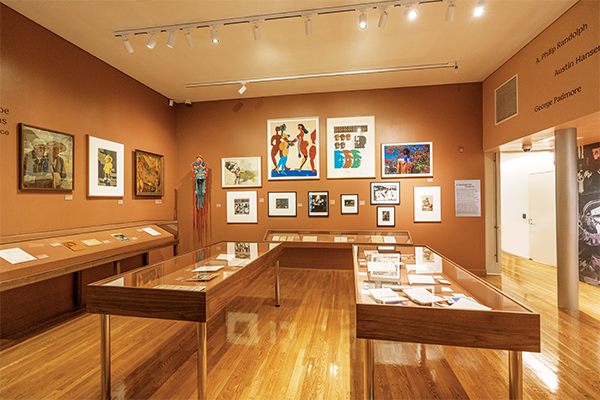IN MAY, THE Schomburg Center for Research in Black Culture, located in Harlem, N.Y., celebrated its 100th anniversary. Originally known as the 135th Street Branch Library Division of Negro Literature, History and Prints, it is named after Arturo Schomburg, a Black Puerto Rican from Santurce, Puerto Rico. He moved to New York City when he was 17 and is widely considered one of the great luminaries of the Harlem Renaissance.
Shouldn’t churches see cultural preservation as part of their mission?
Schomburg recalled an encounter with his fifth grade teacher, who told him, “Black people have no history, no heroes, no great moments.” That moment left an indelible mark. He would go on to dedicate his life to collecting artifacts, papers, and works of art from Africa and across the African diaspora. In his seminal essay, “The Negro Digs Up His Past,” Schomburg referred to his 10,000-item collection as “vindicating evidences.”
Since learning about Schomburg, I have reflected on how, as a Latino, Schomburg could have chosen to suppress the story of his own Blackness. Instead, he embraced his full Puerto Rican identity, Blackness and all. Schomburg’s life, identity, and vocation form a bridge, one that is especially meaningful in a world where the erasure of Blackness persists. His journey feels like a sacred calling, one that holds up a mirror to the United States in this very moment.
The United States has failed to acknowledge its Blackness. Instead, we find the U.S. erasing accomplishments, undermining institutions, and sidelining the people who helped shape the nation from the start. Yet Blackness is part of the foundation of our country. It’s part of our collective DNA — that is, if we believe our country to be a diverse body of people. Consequently, when our country denies its Blackness, it denies its own identity.
Preservation and acknowledgment therefore become acts of honor. And one way to honor our country’s Blackness is to trace the “through lines” of modern culture back to its Black origins. When white jazz musicians reference the Afro/Créole roots of jazz, that’s honoring. When white rappers like Macklemore or Eminem pay homage to hip-hop as Black cultural production, that’s honoring. When Mick Jagger thanked Muddy Waters for his influence — even naming the Rolling Stones after one of his songs — that’s honoring. These are sacred acts showing that Blackness is like a nebula, birthing the substance of stars.
If people of faith understood that Black culture is sacred, then cultural preservation would become another form of ministry — a means of honoring the image of God in creation. I often wonder: Shouldn’t churches, especially those in historically Black neighborhoods, see cultural preservation as part of their mission?
Through my encounter with Schomburg’s work, I came to see the sacredness of my own Black identity. Like him, I can trace my roots to St. Croix and Puerto Rico. I also carry a Spanish first name and a European surname passed down through a white ancestor. Through my own ancestral excavations, I reclaimed the image of God in my Blackness. And here in Harlem, I live inside a timeline where past and future hold hands — in places like the Schomburg Center.
Today, the Schomburg Center houses more than 11 million artifacts connected to diasporic Blackness. One of my favorite events is the annual Black Comic Book Festival, which features young Black writers. It reflects Schomburg’s dream, rooted in history and reaching toward a future shaped by the boundless imagination of Blackness.

Got something to say about what you're reading? We value your feedback!

